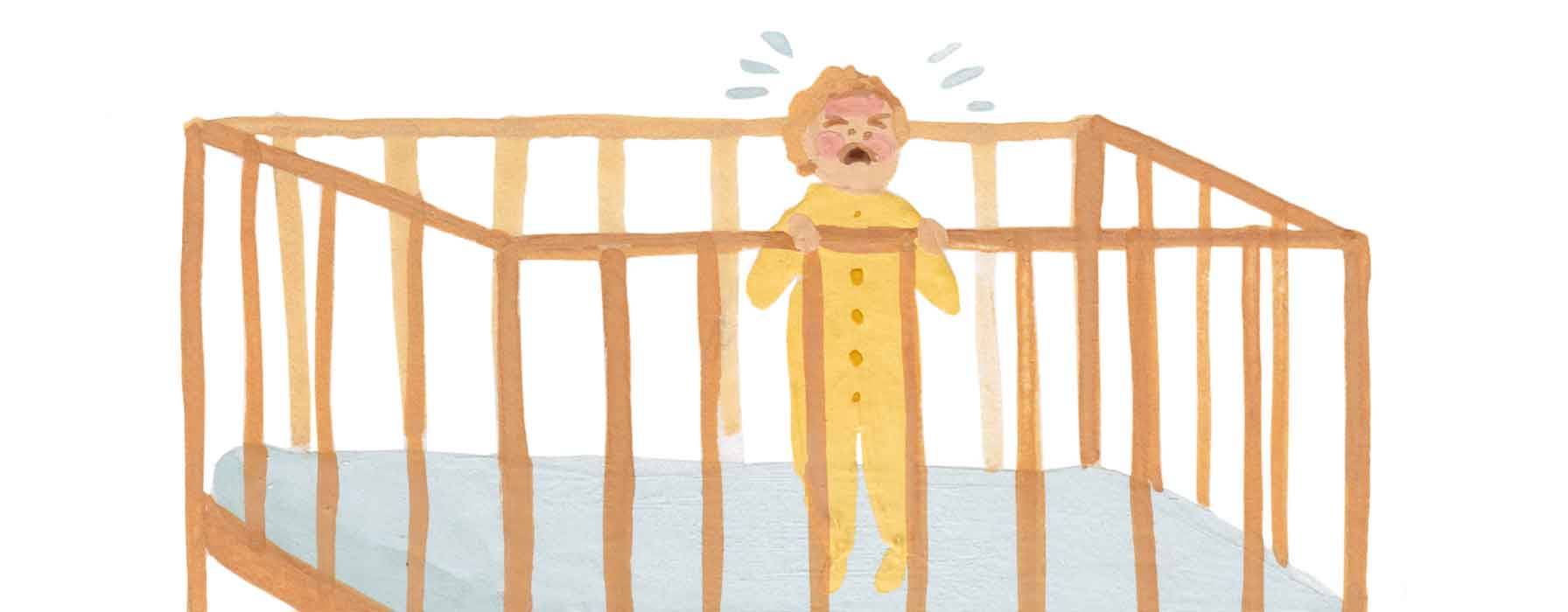Many kids don’t sleep through the night until the age of three. To create a good sleeping environment for your child, relax and trust your instincts. Tips from a Paediatrician and Sleep Expert.
“Most breastfed children do not sleep through the night and many children don’t sleep through well into their third year of life,” observes Renz-Polster, debunking a popular myth. What can parents do to avoid frazzled nerves from lack of sleep? Bring your child into your own bed, for instance. This is no guarantee for an uninterrupted night’s sleep. But research has shown that the sleep stages of a breast-fed baby synchronise with that of the mother. “When a baby wants to drink, the mother doesn’t wake up entirely from her deep sleep, and can usually go back to sleep quickly,” says Renz-Polster. And if the baby is in the same bed, the mother doesn’t have to physically get out of bed. Furthermore, the act of breastfeeding stimulates her own production of the hormone prolactin – a sleep aid produced naturally in the body. And what if mothers don’t breastfeed or only the father is there? Children relax when in physical proximity to their parents and their familiar scent.
Co-sleeping with your child
Despite the impression many self-help books give that all babies function in the same way, it remains true that every child is unique. This makes it all the more important that parents trust their intuition. How many mothers experience feelings of guilt because they can’t bring themselves to let their child cry for what seems like an eternity, and then – against all recommendations – bring their baby into bed with them? Is it because this might spoil a child and prevent it from becoming independent? “That won’t happen,” says Renz-Polster. They might even develop a healthier sense of independence, for they will carry less fear inside themselves. That leaves parents’ own fear of Sudden Infant Death Syndrome. However, in non-smoking families where there is no abuse of drugs or alcohol, and where the baby is not placed on its stomach to sleep, there is an extremely low risk of SIDS. “For a nursing infant, the parents’ bed is just as safe as its own cot, as long as these basic rules are respected,” says Renz-Polster.
You can’t ‘spoil’ your little child
It’s also important for parents to remember that the more relaxed they are, the easier their child can relax and trust in their home sleeping environment. If parents are overly concerned that their child should go to sleep immediately, “exactly that will not happen,” says the paediatrician. “When parents are stressed, this triggers a reaction in children to demand even more closeness and attention. It creates a kind of push-and-pull situation – demanding and then resisting – making the issue of sleep in the family overpowering. Renz-Polster takes a pragmatic approach: “Because children only relax and go to sleep when their parents are well, then it could also be that a baby will fall asleep in their father’s arms during the Sunday night crime show, or on their mother’s lap while she is checking emails.” With older children, Renz-Polster recommends that the family ends the day together on a relaxed note. This means no TV before bedtime and no surfing the Internet on the computer or smart phone, because this overstimulates the senses, makes it hard to fall asleep and delays the release of the “sleep hormone” melatonin. If preschool-aged children sleep in their own bed at night, a nice bedtime ritual is to have a little talk, perhaps about their grandparents or the household pet. At this age, children don’t remember much and won’t be able to reflect in detail about the day. Although this usually becomes possible when they start primary school, bedtime conversation should remain within a contained context. Parents should mainly listen when their child speaks about the day, only answering if posed a question and without suggesting corrective action (for example: “What if you had done...”).
If your child is afraid of the dark, it’s important to take this seriously, and not to criticise with something like: “But you’re so big already!” A small night light can comfort children as they fall asleep, as long as it doesn’t shine directly into their eyes. And a hot water bottle can work wonders for cold feet.


